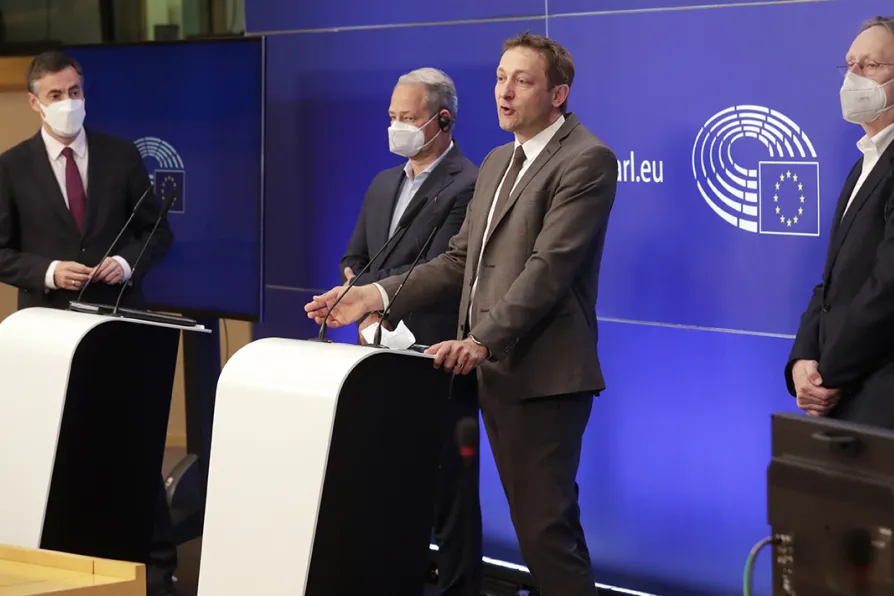Investigators says Ukraine may be behind the attack

 From left, Members of European Parliament, David McAllister, Andreas Schieder, Christophe Hansen and Bernd Lange participate in a media conference after a debate on the EU-UK trade and cooperation agreement at the European Parliament in Brussels
From left, Members of European Parliament, David McAllister, Andreas Schieder, Christophe Hansen and Bernd Lange participate in a media conference after a debate on the EU-UK trade and cooperation agreement at the European Parliament in Brussels
THE European Parliament agreed the EU-UK Trade Co-operation Agreement today, confirming the post-Brexit deal thrashed out between Brussels and London.
A resolution condemning Brexit as a “historic mistake” but supporting the deal as a way of limiting “negative fallout” from it passed by 578 to 51 votes with 68 abstentions. It was agreed by MPs at Westminster on December 30.
“The EU and the UK have created the basis for a relationship among equals,” announced EU Parliament foreign affairs committee chairman Andreas Schieder.

Starmer sabotaged Labour with his second referendum campaign, mobilising a liberal backlash that sincerely felt progressive ideals were at stake — but the EU was then and is now an entity Britain should have nothing to do with, explains NICK WRIGHT













